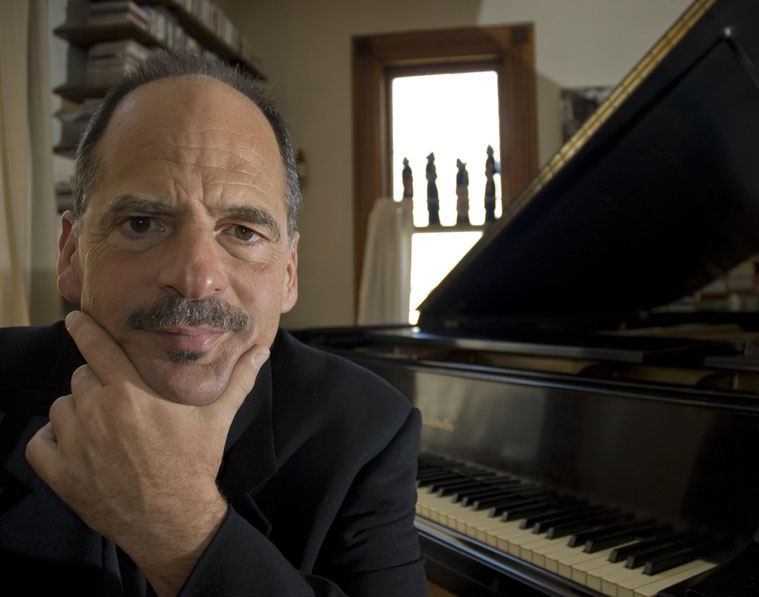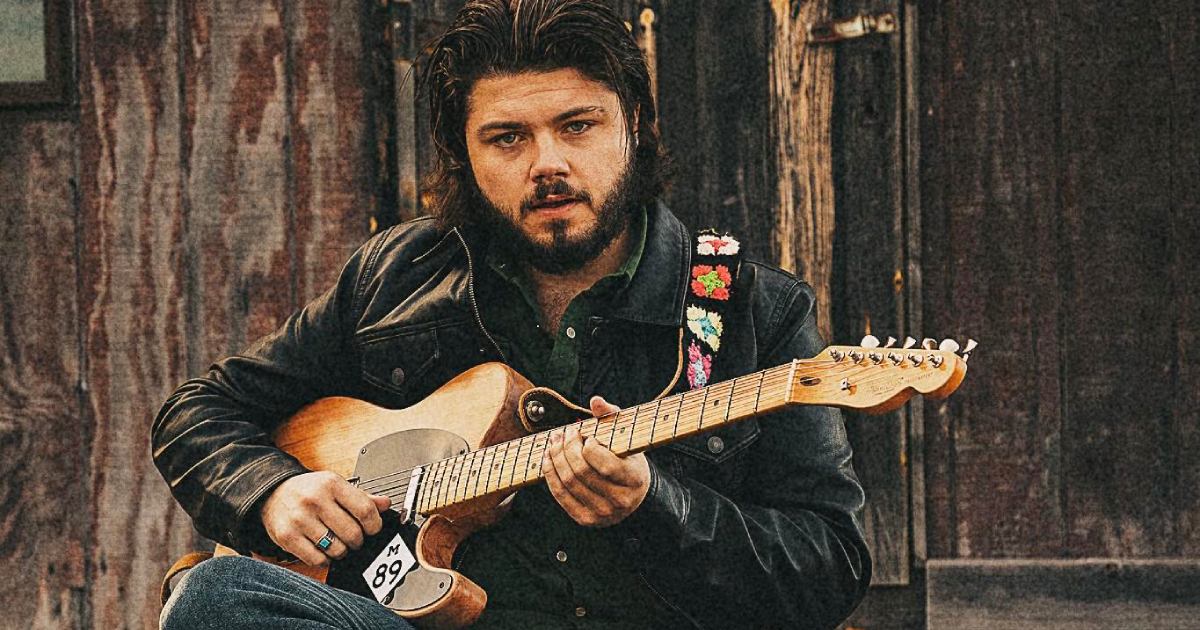Jazz at Sunset with Jeff Haas and friends
Thursdays through Sept. 3, 7–9:30 p.m.
Chateau Chantal Winery and Inn
15900 Rue Devin, Traverse City
FREE
(231) 223-4110
Jeff Haas Trio
Lelu Cafe, 109 Nagonaba St., Northport
7-10 p.m. Wednesdays through Sept. 2
FREE
(231) 386-1600
If Jeff Haas is a cocktail pianist, he mixes a heady cocktail. The Traverse City-based pianist and composer has been swirling the music of Thelonious Monk, Miles Davis, John Coltrane and other jazz legends with his own original compositions, along with fresh takes on the Great American Songbook, at two jam-packed summer gigs in northwest Michigan all summer.
Haas and his star guests from around the state aren’t much interested in serving up an unobtrusive counterpoint to clinking glasses.
“I’ve heard so many musicians tell me you can’t play ‘Pithecanthropus Erectus’ or ‘Reincarnation of a Love Bird’ on a commercial gig,” Haas said, naming two of bassist Charles Mingus’ most famous compositions. “But I beg to differ.”
For Haas, careful rehearsal, well-crafted arrangements and an openness to the limitless possibilities of the moment make the difference between forgettable Muzak and a memorable night of jazz.
“I think it’s similar to why rock bands don’t play Frank Zappa,” Haas said. “It’s not that Zappa isn’t engaging; it’s just not something you can call without rehearsal. Monk and these other composers are filled with intriguing, engaging melodies.”
The formula has proved an astonishing success. This year, Haas is in his 22nd summer in residence at Chateau Chantal Winery and Inn, 12 miles north of Traverse City.
Beginning this summer, Haas has also been holding fort each Wednesday through Sept. 2 at Cafe Lelu, a small cafe and boutique hotel in Northport near the tip of the Leelenau Peninsula. The Cafe Lelu group includes Randy Marsh on drums, Ann Arbor bassist Bruce Dondero and, on occasion, longtime Haas bandmate Laurie Sears on saxophone and flute.
Each week at Chateau Chantal, Haas is joined by veteran bassist Jack Dryden and drummer Randy Marsh of the Lansing-based organ trio organissimo. Guests have included many of the state’s best jazz musicians, including bassist Marion Hayden, drummer Sean Dobbins, guitarist George Benson and legendary trumpet master Marcus Belgrave, a longtime friend and collaborator whose death last May was a blow to the jazz world. Belgrave’s trumpet proteges, Chris Lawrence and Anthony Stanco, also sit in with Haas from time to time.
For over two decades, the Chateau Chantal gig has been the envy of every jazz musician who made the trip to Traverse City to play with Haas.
Usually, Haas said, they start texting him excitedly on the caravan drive from his home in Traverse City to the gig.
“It’s a stunning drive about 12 miles north from Traverse City on Old Mission Peninsula,” Haas said. “There are vistas where you can see both east and west bay.”
The dining room where Haas plays holds about 120 to 130 people. If the weather is good, doors and windows open onto decks on both sides of the room that hold another 200. A panoramic sunset view opens onto the east and west bays around Old Mission Peninsula.
“We started on a mid-June Thursday in 1993 and it’s literally been a packed room every Thursday since,” Haas said.
Chairs are set up inside, concert-style. “There’s a ton of respect for the music,” Haas said. “The people outside socialize and listen to the music with one ear. The people who sit inside are avid listeners.”
“Jazz at Sunset” could have been a 19th-hole, celebrate-the-easy-life gig, but that would never have suited a restless soul like Haas. Jeff is the son of Karl Haas, host of Adventures in Good Music, a popular classical radio show that ran coast-to-coast from 1970 to 2007. Growing up in Detroit, he clambered over pipe organs and grand pianos and hung out with his father’s famous friends, icons like Leonard Bernstein, Anton Rubinstein and Igor Stravinsky.
As soon as Haas discovered Motown and jazz, he was down the rabbit hole of groove, improvisation and swing. He decided to pursue a jazz career, despite his father’s stern disapproval.
Haas is still a bifurcated soul. His music oscillates between formal discipline and off-road bouncing, Bruce Banner and The Hulk, and the tension infuses his music with a urgency and drive.
During breaks at Lelu Cafe, people come up to Haas and request connoisseur favorites like “The Oracle” by bassist Dave Holland or “One Finger Snap” by pianist Herbie Hancock.
At Chateau Chantal, Haas relies a bit more on the standards, but he has found audiences receptive to whatever he dishes out.
“They’re right there with us,” he said.
When Haas tackles an intricate or challenging composition, he never strays far from what he considers to be the three main ingredients of music: harmony, melody and rhythm.
“Give them one of those ingredients — an ostinato line, a groove, something people can hang their hat on — people will go much further with you than we assume they will,” he said.
Like his father, Haas is a teacher at heart, but it took a while for the son to navigate around his father’s long shadow. (When Haas was young, his father told him jazz would ruin the needle on a turntable.) After a long period of estrangement, each came to appreciate the other. (Karl Haas died in 2005.)
After making his own mark as a jazz musician, Haas realized that he absorbed more from his dad than he realized.
“My dad always told me to surround myself with great musicians,” Haas said. “Over the years, I’ve sorted out the ones who are, to be blunt, assholes off the bandstand and surrounded myself with people who are like-minded. If someone gives me grief about calling a Mingus tune because they think the audience won’t like it, my response is to at least give it a try.”
Haas is active on many fronts, as a composer, performer, and radio host, but he’s most proud of what he calls his “social work.” His non-profit organization, Building Bridges Through Music, has toured the state dozens of times, performing concerts in rural and urban areas, exposing kids to musicians of colors and creeds different than their own.
A cushy winery gig didn’t seem like a good fit for Haas, but as a classical music apostate, he was intrigued that Chateau Chantal was founded by a former priest and a former nun, Robert and Nadine Begin.
After leaving the church, the Begins bought land in Old Mission Peninsula and had a daughter, Marie-Chantal Dalese, now the CEO of Chateau Chantal.
Dalese said Haas has become “family” to her family and staff in Jazz at Sunset’s 22 years.
“It started as a way to promote the winery, to draw people to come here and enjoy some great music while tasting wine, but it’s grown to a community event on its own,” Dalese said.
Despite his classical pedigree, Haas is a sweaty-underarm, in-the-trenches piano man and educator. He had no interest in winery snobbery and feared the worst when he went to meet the owners and staff in 1993.
“I had a preconception about people who had a passion for wine. I expected people to hold their wine glasses with their pinkies up,” he said. “I expected a certain amount of aloofness.”
He wouldn’t have stayed so long if that were so.
“It’s just a welcoming place,” he said. “Bob will give tours with as much glee and passion to people arriving in limos from Bowers Harbor to guys riding up in their Harleys in muscle T-shirts and tattoos.”
Along the way, Haas has hosted countless benefits at Chateau Chantal for area non-profits like the Children’s Advocacy Center. Haas and his group recorded two Jazz at Sunset CDs to celebrate the 10th and 20th anniversaries of the gig.
“Not only is it a wonderful gig, but I feel there is a mutual level of respect and commitment to community support that continues to this day,” Haas said. “They are remarkable people.”
About four years ago, Haas picked up an interesting “bandmate” who has become an integral part of the Chateau Chantal gig: artist Lisa Flahive from Grand Haven.
“She’s fascinating to me,” Haas said. Flahive, a former Las Vegas cop, broke her ankle in hot pursuit of a perpetrator. She ended up with a frustrating desk job, took early retirement and concentrated on her passion for drawing and painting.
About four years ago, she approached Haas and asked to draw a portrait of the band. Haas set a condition: do it live, on stage, while the band was playing.
“Visual artists aren’t usually public performers,” Haas said. “It was hard to find visual artists who would go on stage with us and create art, but Lisa didn’t bat an eye. She dove right in.”
Haas introduces her as part of the band: “Jack Dryden on bass, Randy Marsh on drums, Lisa Flahive at the easel.”
“There’s an uncanny energy to her art,” Haas said. “She bops around and moves to the music.”





